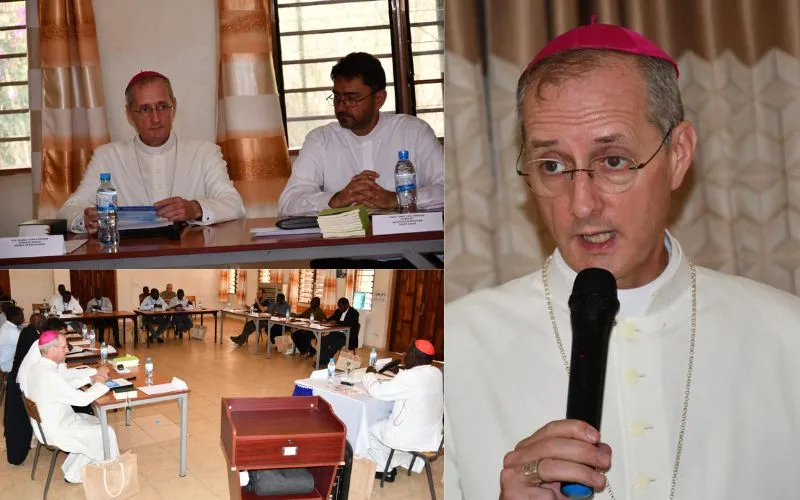Juba, 22 November, 2024 / 8:20 pm (ACI Africa).
The Apostolic Nuncio in South Sudan has commended religious institutes in the east-central African country for their significant contribution to the Church’s mission in the world’s youngest nation, describing the institutes as “an invaluable component” of the Church in the country.
In his address during the November 15 meeting with members of the Sudan and South Sudan Catholic Bishops’ Conference (SSS-CBC) at the Good Shepherd Peace Center in Kit in South Sudan’s Catholic Archdiocese of Juba, Archbishop Séamus Patrick Horgan also lauded Priests and Religious members working in challenging environments in the country.
Archbishop Horgan recounted the experience he had with the members of the Religious Superiors Association of South Sudan ( RSASS) during his visit in September. During the visit, he said he observed the significant work being undertaken by male and female religious, often in challenging circumstances, as they devoted themselves to serving the local Church.
From this visit, the first-ever resident Apostolic Nuncio to South Sudan appointed in May this year, noted, “The religious institutes constitute an invaluable component of the church in South Sudan.”
He said that had been deeply moved by reports of Priests carrying out their ministry in refugee and displaced persons' camps, prisons, and other areas marked by significant human and spiritual challenges.








